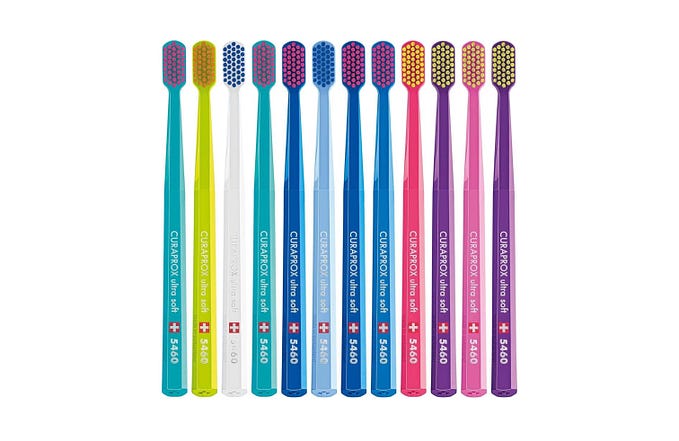Do you want to live longer?
Then you must love one thing

We love almost everything in this world; our children, spouse/partner, parents, dog, car, house, city, country, sports teams, weather, job, food, clothes, vacation, and so on. We love these and a lot more from the bottom of our heart, however, often we do not love our heart, the most important organ of the body. Many people believe that the brain is the most important organ of the body as it controls all organs, and if the brain dies, the body dies immediately. Well, while this is true, still the heart is the most important organ of the body as it pumps blood to all organs to provide oxygen and nutrients to enable them to function. Without blood, no organ, including the brain, can function.
Heart Disease is the Leading Cause of Death
According to a recent report, “WHO reveals leading causes of death and disability worldwide: 2000–2019” published by the World Health Organization, heart disease has remained the leading cause of death at global level during the study period, i.e. 2000–2019. According to WHO, the number of deaths from heart disease increased by more than 2 million since 2000, to nearly 9 million in 2019.
Love Your Heart to Live a Long Healthy Life
We love our children and go out of the way to help them to grow, develop and educate them so that they can live a good life. The heart being the most important organ of the body, why don’t we love our heart to that extent? People generally love their hair, face or nails and take good care of them, however, the heart often gets ignored. Perhaps, as the poor heart never complains, keeps working day and night, without stopping even for a second, people take it for granted. On the contrary, the heart being the lifeline of our body, we should love it the most and take good care of it, so that it continues to provide the oxygen and nutrients to all organs to enable us to live a long and healthy life.
How to Love Your Heart?
Your heart, having a size of about slightly larger than your closed fist, pumps about 2000 gallons (9450 litres) of blood each day. It has the hardest working muscle and continues to work as long you are alive. The least you can do for your heart is not forcing it to do more work, and making the heart muscle stronger so that it can do its work with ease.
As your heart needs to pump oxygenated blood to all organs of the body, it’s muscle needs a lot of oxygenated blood to enable it to do its job, which is provided by coronary arteries. Due to poor lifestyle choices, plaque (fatty buildups) starts building up inside coronary arteries, making it harder for the blood to flow. If a plaque in a coronary artery breaks open, it makes a blood clot which can further reduce the blood flow to the heart muscle. And, sometimes, plaque rupture can result in complete stoppage of blood flow, resulting in heart attack.
Without going into too many technical details of the working of heart and heart diseases, let us discuss what you can do to reduce chances of heart disease and live a healthy life.
- Be Physically Active: Countless studies have confirmed that being physically active is the single most important factor that improves cardiovascular health and significantly reduces the risk of heart diseases. The American Heart Association (AHA) and The Heart and Stroke Foundation of Canada recommend at least 150 minutes of moderate-intensity physical activities per week. Okay, so what do we need to be “Physically Active”? Any activity that increases heartbeat by about 50% or more is a good physical activity. Let us keep it less technical — moderate to brisk walking, jogging/running, biking, swimming, stairs climbing, and most sports and Gym activities fall under “Physical Activities”. Being physically active, preferably 60 minutes a day, will go a long way in keeping your body in general, and heart in particulat, healthy. While you may go to Gym for physical activities, it is not essential. Instead, it is beneficial if you are active outside in nature. If you pay a little attention around you, you can easily complete your daily 60 minutes of physical activity, e.g. take stairs instead of an elevator if you work or live in a high rise building, walk your child to the school, get down a stop or two before your destination on bus/subway and walk the last mile, do gardening, and so on. Physical activities are not only helpful for your heart, but the entire body, as it helps reduce weight, reduce blood pressure, reduce LDL (bad) cholesterol, increase HDL (good) cholesterol, reduce stress, increase energy levels, improve sleep, etc.
The long term effect of exercise is good for the heart. According to the paper — Genetics and the heart rate response to exercise, “The long-term response of heart rate to exercise results in favourable changes in chronotropic function, including decreased resting and submaximal heart rate as well as increased heart rate recovery.” Physical activities strengthens the heart, improves blood circulation, and with reduced resting heart rate, the heart needs to work less hard to pump the blood. - Eat Healthy Food: Eating healthy food significantly reduces the risk of heart disease. In simple words, healthy eating means having a balanced diet, i.e. eating lots of vegetables and fruits, eating food made from whole grains, including sufficient protein, avoiding processed food, reducing salt and sugar, and not eating too much fat. For more details, see Healthy Eating and “How to stay Healthy?”.
- Don’t be Overweight or Obese: If you are overweight or obese, reduce your weight to reduce the risk factor of heart disease. And to reduce weight, see point #1 (Be Physically Active) and #2 (Eat Healthy Food) above. And, if your weight (or BMI, ie Body Mass Index) is the normal range, do everything in your capacity to maintain it, as it is much easier to maintain weight than lose it.
- Quit Smoking: If you smoke, consider quitting it as soon as possible to reduce the risk of developing heart diseases. According to Centre for Disease Control and Prevention (CDC): “Chemicals in cigarette smoke cause the cells that line blood vessels to become swollen and inflamed. This can narrow the blood vessels and can lead to many cardiovascular conditions.”
- Reduce or Stop Drinking: You might have heard that drinking a small amount of alcohol (one drink a day) is good for your heart, however this is not backed by science. While a small amount of alcohol may not be bad for your heart, however cardiologists do not recommend drinking to improve the health of your heart. Of course, there is no doubt that heavy drinking, particularly in one session increases risk of developing heart diseases, besides other diseases, like liver disease, stroke, high blood pressure, digestive problems and weakening of the immune system.
- Reduce Stress: It has become very difficult to live stress free in the modern lifestyle, while countless studies have confirmed that stress increases the risk of developing heart diseases. Stress may affect your heart directly by increasing the heart rate or blood pressure, or indirectly through bad health behaviours, such as lack of physical activity, overeating/under-eating, unhealthy diet, smoking, drinking, etc. caused by stress. If you have stress, particularly chronic stress, please take corrective actions as soon as possible, and don’t hesitate to take professional help. (See Meditation in How to stay Healthy?)
- Manage Diabetes: If you have diabetes, keep it under control as high sugar levels in the blood can damage arteries that supply blood to the heart, thus increasing the risk of heart attack.
- Keep Blood Pressure and Cholesterol Level in Control: Keep your blood pressure and cholesterol levels under control as high blood pressure and increased cholesterol levels significantly increase the risk factors for heart diseases. Get cholesterol levels and blood pressure checked on a regular basis by your physician.
- Get a Regular Heart Check: Visit your family physician on an annual or biannual basis to get your heart checked to detect heart diseases before it is too late. Your physician may recommend a blood test, ECG (ECK), Heart Stress Test or other tests to detect the possibility of heart diseases. This is important as heart diseases may develop slowly without causing any visible sign or pain.
Conclusion
Your heart plays a critical role to keep you alive by working non-stop to supply oxygen and nutrients to all organs of the body. It is your duty to take good care of your heart!
If you enjoyed this…
Please feel free to👏 👏 👏 it up. It gives me encouragement and helps more people find it! And, I also look forward to your comments/feedback.








